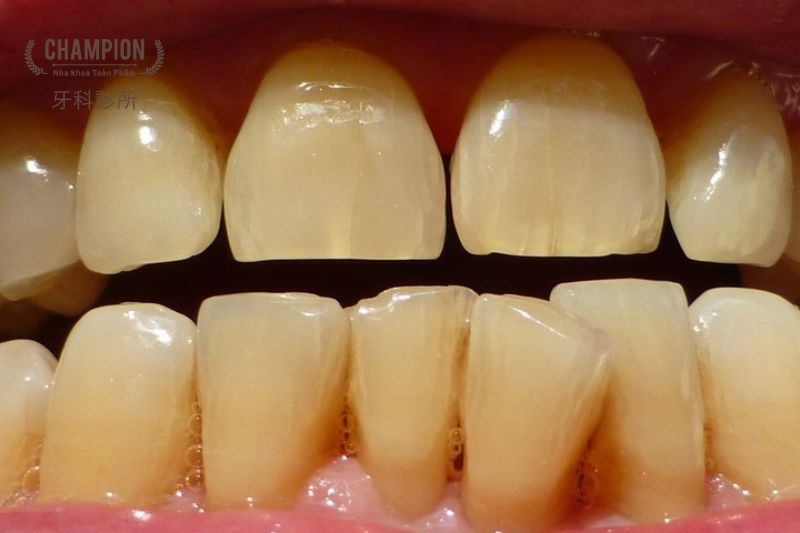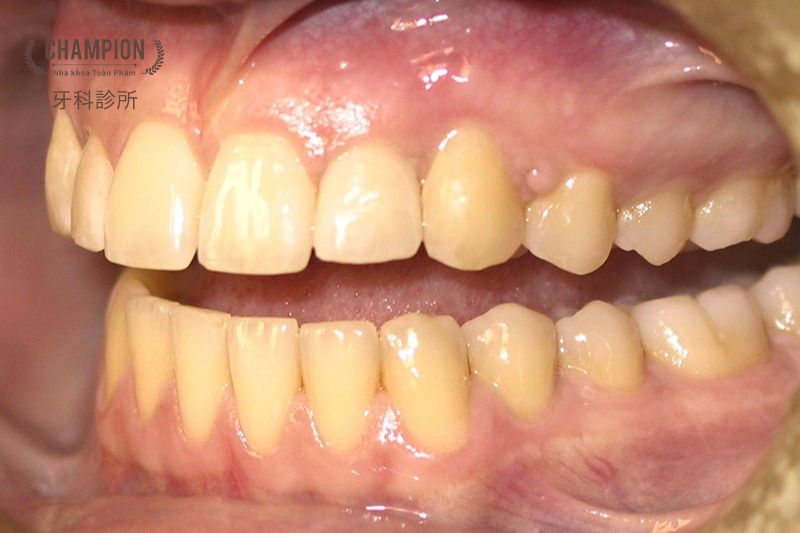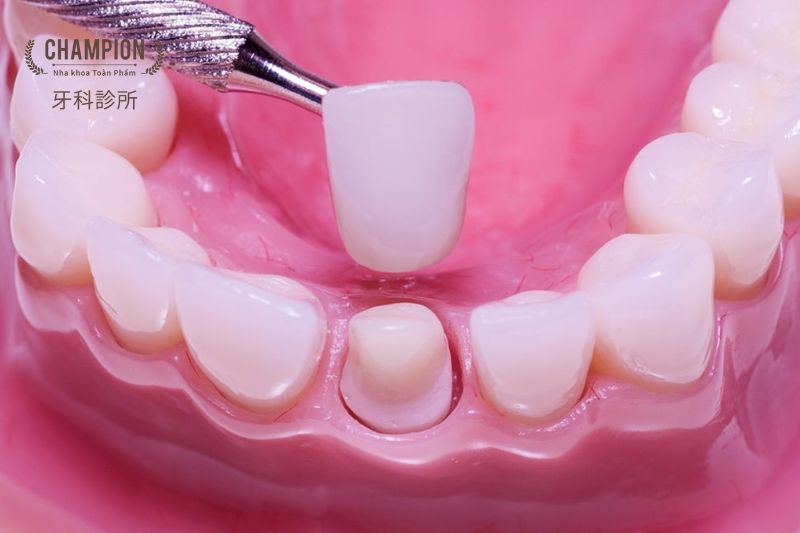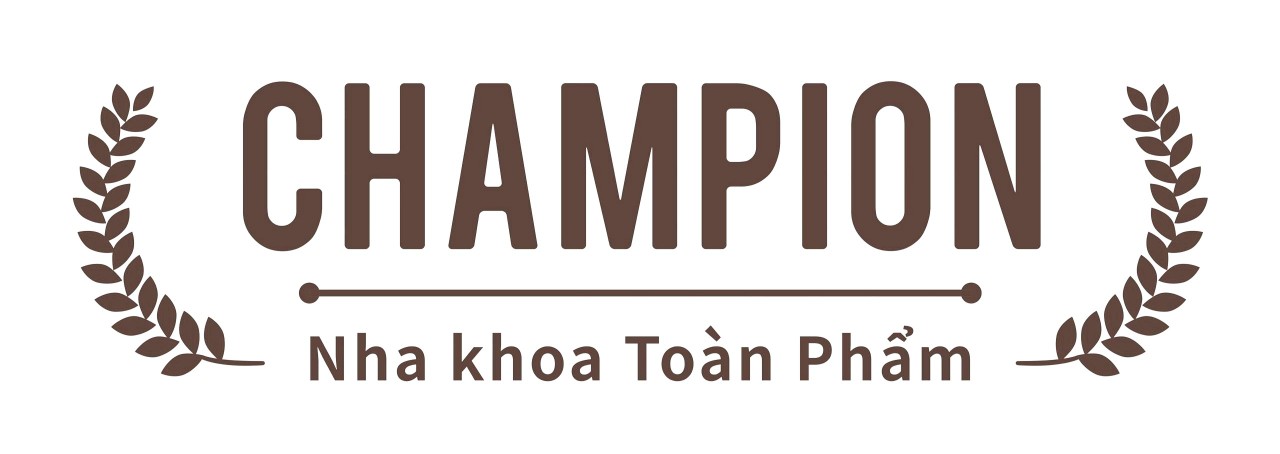Innate discolored teeth are a common issue that many people have to deal with. This originates from genetic factors, causing the tooth enamel to be thinner and more translucent than usual. Although it does not affect dental health, this concern often makes people feel self-conscious and eager to find ways to enhance the appearance of their smiles. So, can innate discoloration be improved? Stay tuned for the following article from Champion Dental Clinic to find out!
Causes of Innate Tooth Discoloration
Innate tooth discoloration is a common issue faced by many individuals, and there are several causes for this condition. Here are some primary reasons:
Antibiotic Staining
Certain types of antibiotics, especially tetracycline, can lead to innate tooth discoloration when absorbed into the tooth structure during development. This often occurs when the dosage exceeds safe limits or is prolonged over an extended period. This impact can be challenging to reverse and can affect the natural color of the teeth.
Genetic Factors
Genetics play a crucial role in determining tooth pigmentation and enamel. If there are color-related issues in the family, especially from parents, there is a high likelihood that similar concerns will be inherited by the child. If parents have experienced issues like innate tooth discoloration from an early age, the child may face a higher probability of this condition.
Improper Dental Care
Inadequate dental care from childhood can also contribute to innate tooth discoloration. Incorrect brushing techniques, infrequent use of mouthwash, or failure to adhere to regular dental check-ups can create conditions for the appearance of tooth discoloration.

Can Innate Discoloration be Improved?
Innate tooth discoloration is a complex issue rooted in internal factors such as body composition or genetics, raising questions about the effectiveness of treatment methods. While many cases of tooth discoloration caused by external environmental factors can be relatively easily treated, addressing genetic and internal factors complicates the treatment process.
Innate yellowing of teeth often stems from genetic inheritance or other internal factors within the body. These cases are typically challenging to treat through conventional means, emphasizing the need for specialized intervention from a dentist. Treatment methods may include deep teeth whitening, veneers, lumineers, or other cosmetic dentistry approaches, depending on the specific conditions of the patient.
The effectiveness of treatment methods depends on the specific case of innate tooth discoloration, and determining appropriate treatment options is the responsibility of a professional dentist. Dentists may recommend methods such as deep teeth whitening, veneers, lumineers, or other cosmetic procedures based on the individual circumstances of the patient.

>> See more: Discoloration of teeth due to antibiotics: Should you be concerned?
Effective Methods to Improve Innate Tooth Discoloration
Innate yellowing of teeth is often a reason many individuals feel self-conscious about their smiles. However, there are now several effective treatment methods to address this condition. Here are some of the most common methods for treating innate tooth discoloration:
Dental Crowns
The use of dental crowns has become a preferred choice for cases of innate tooth enamel discoloration. Particularly effective when dealing with broken or cracked teeth, this process helps restore the color and shape of the teeth. The dentist will grind down the natural tooth and then attach a ceramic crown. Dental crowns not only provide long-lasting effectiveness (lasting from 7 to 10 years) but also require proper care to maintain their durability.
Advanced Teeth Whitening Technologies
For cases of severe internal discoloration due to intrinsic factors, laser teeth whitening is an advanced and effective method. This technique not only yields immediate results but is also highly praised for its safety, providing comfort and peace of mind for the user.
Ultra-Thin Porcelain Veneers
The application of ultra-thin porcelain veneers is a solution that minimizes tooth grinding, ensuring maximum protection for the natural tooth with veneers as thin as 0.3 - 0.6mm. Additionally, veneers help maintain the natural beauty of the teeth without altering their shape and color. This is a popular and effective option for individuals with innate tooth discoloration.
However, choosing the appropriate treatment method should be discussed and carefully advised by a dental professional to ensure that your decision is the best choice for both the health and aesthetics of your smile.

How to Prevent Tooth Discoloration?
Tooth discoloration not only reduces confidence but also signals poor oral health. To avoid this, maintaining oral hygiene and implementing preventive measures are crucial. Here are some ways to protect teeth from discoloration:
- Proper and Regular Brushing: Brush teeth at least twice a day, using a soft-bristle toothbrush to avoid damaging tooth enamel. Brush correctly, from top to bottom, and use fluoride-containing toothpaste to enhance enamel protection.
- Dental Floss or Water Picks: Use dental floss or water picks to remove food particles between teeth, preventing plaque formation and gum issues.
- Regular Dental Checkups: Visit the dentist at least twice a year for cleanings and oral health assessments. Dentists may perform teeth whitening procedures to remove plaque and restore the natural color of teeth.
- Healthy Diet: Limit the consumption of staining substances like coffee, tea, red wine, soda, and food with artificial colorings. Increase intake of calcium-rich and vitamin D-rich foods to protect tooth enamel.
- Quit Smoking: Quit smoking, as nicotine and compounds in cigarettes can discolor teeth and increase the risk of gum infections.
Conclusion
The article from Champion Dental Clinic has provided detailed information regarding innate tooth discoloration. It is hoped that the information proves helpful in maintaining optimal oral health. If you intend to visit a dentist to address innate tooth discoloration, Champion Dental Clinic is a reputable destination, ensuring quality services and techniques.
Vietnamese & English: (028) 5411-2295
中文: (028) 5411-2297 172 Nguyen Luong Bang, Tan Phu Ward, District 7, Ho Chi Minh City.
Fanpage: Champion Dental Clinic 牙科診所
Zalo: Champion Dental Clinic
Youtube: Champion Dental Clinic 牙科診所
 Champion Dental Clinic
Champion Dental Clinic



